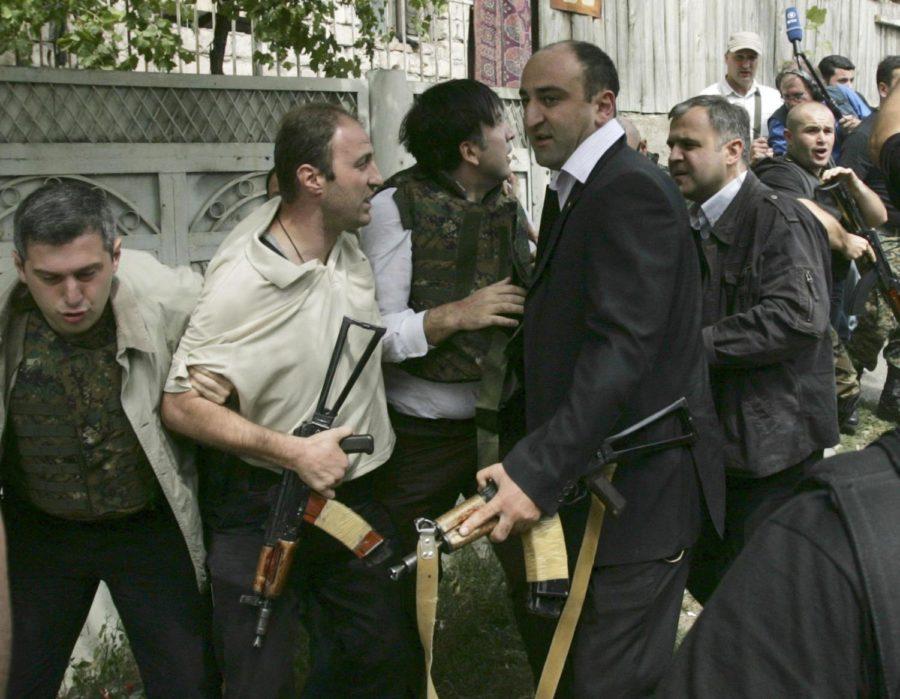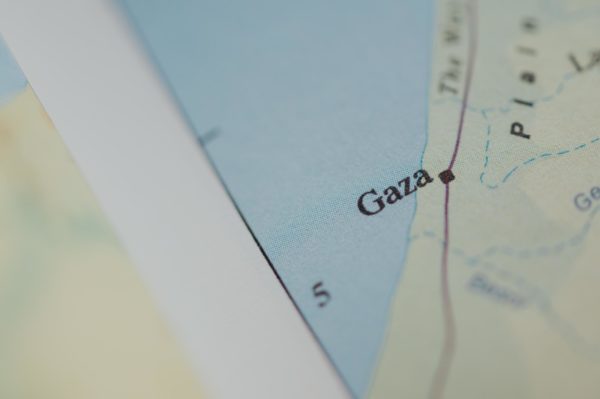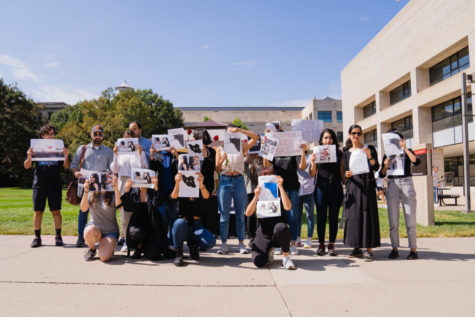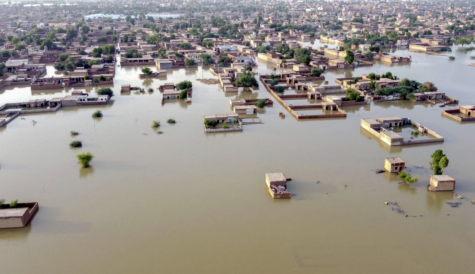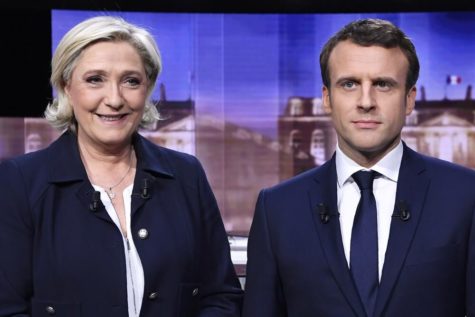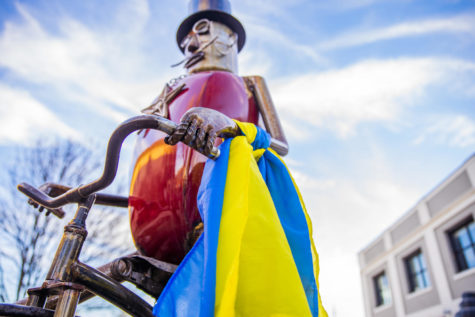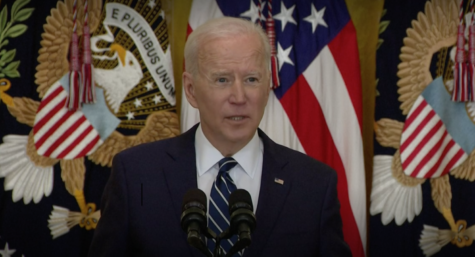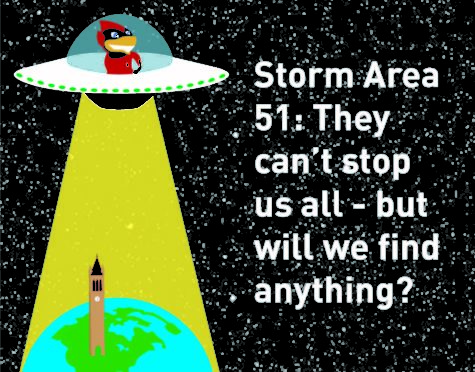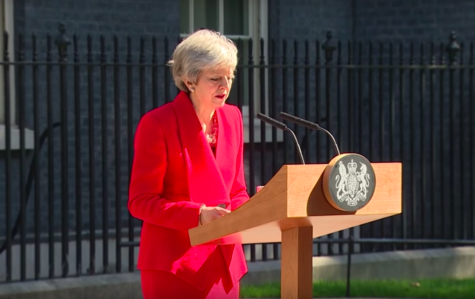Russia seizes Georgia base, opens second front
Bodyguards escort Georgian President Mikhail Saakashvili, third from left, wearing a protective vest, to shelter under the threat of Russian air attack in Gori, Georgia, Monday, Aug. 11, 2008. (PHOTO BY THE ASSOCIATED PRESS)
August 11, 2008
TBILISI, Georgia — Russia opened a second front of fighting in Georgia on Monday, sending armored vehicles beyond two breakaway provinces and seizing a military base and police stations in the country’s west, officials said.
The new forays into Georgia — even after Georgian President Mikhail Saakashvili signed a cease-fire pledge — appeared to show Russian determination to subdue the small, U.S.-backed country, which has been pressing for NATO membership.
The latest developments indicate that Russian troops have invaded Georgia proper from the separatist province of Abkhazia while most Georgian forces are locked up in fighting around South Ossetia.
The West has sharply criticized Russia’s military response to Georgia’s attack on South Ossetia as disproportionate, and the Group of Seven leading industrialized nations urged Russia on Monday to accept an immediate cease-fire and agree to international mediation.
“We want to see the Russians stand down,” deputy State Department spokesman Robert Wood told reporters in Washington.
With Europe depending on Russia for a quarter of the oil it consumes — and half of its gas needs — the conflict serves as a vivid demonstration of Russian power in the Caspian region.
Russian armored personnel carriers rolled into the base in Senaki, a town in Western Georgia about 20 miles inland from the Black Sea port of Poti, Georgian Security Council secretary Alexander Lomaia said. In Moscow, a government official who spoke on condition of anonymity because he wasn’t authorized to give his name, said the move into Senaki was intended to end Georgian resistance.
Russian forces also seized police stations in the town of Zugdidi and allied separatist forces took over a nearby village, Georgian Interior Ministry spokesman Shota Utiashvili said.
U.S. Secretary of State Condoleezza Rice and the foreign ministers of Britain, Canada, France, Germany, Italy and Japan called on Russia to respect Georgia’s borders and expressed deep concern for civilian casualties, Wood said, adding that the call was one of more than 50 Rice made over the weekend on the matter.
Russia’s move to open a second front came hours after a senior Russian general insisted that Russia has no plans to press into Georgian territory beyond the breakaway regions.
The United States is campaigning to get Russia to halt its retaliation and American officials have accused Russia of using the fighting to try to overthrow the Georgian government. President Bush, who has encouraged Georgia’s efforts to join NATO, said he spoke with Russian Prime Minister Vladimir Putin and the Russian president.
“I’ve expressed my grave concern about the disproportionate response of Russia and that we strongly condemn the bombing outside of South Ossetia,” Bush said in an interview with NBC Sports.
In turn, Putin criticized the United States for airlifting Georgian troops back home from Iraq on Sunday at Georgia’s request.
“It’s a pity that some of our partners instead of helping are in fact trying to get in the way,” Putin said at a Cabinet meeting. “I mean among other things the United States airlifting Georgia’s military contingent from Iraq effectively into the conflict zone.”
Putin’s comments reflected Russia’s growing irritation with Western condemnation.
“The scale of their cynicism causes surprise,” Putin said. “It’s the ability to cast white as black and black as white which is surprising, the ability to cast the aggressor as the victim and blame the victims for the consequences.”
Putin remarks also reflected deep anger at Georgia’s President Mikhail Saakashvili.
“Of course, Saddam Hussein ought to have been hanged for destroying several Shiite villages,” Putin said. “And the incumbent Georgian leaders who razed ten Ossetian villages at once, who ran elderly people and children with tanks, who burned civilian alive in their sheds — these leaders must be taken under protection.”
Putin and other Russian officials have accused Georgian forces of committing atrocities against civilians in South Ossetia — claims that could not be independently verified.
Georgia began an offensive to regain control over South Ossetia overnight Friday with heavy rocket and artillery fire and air strikes that ravaged the provincial capital, Tskhinvali.
Russia, which has developed close ties with the region and granted passports to most of its residents, sent in thousands of troops who launched an overwhelming artillery barrage and air attacks against Georgian troops. Heavy Russian shelling drove the Georgian forces out of the South Ossetian provincial capital of Tskhinvali on Sunday.
Saakashvili, the Georgian president, voiced concern that Russia’s true goal was to undermine his pro-Western government. “It’s all about the independence and democracy of Georgia,” he said during a conference call.
At a U.N. Security Council meeting on Sunday, Russia’s ambassador to the United Nations, Vitaly Churkin, acknowledged there were occasions when elected leaders “become an obstacle.”
Saakashvili said Russia has sent 20,000 troops and 500 tanks into Georgia — with some troops getting within three miles of Gori, located just outside South Ossetia, before being repulsed Sunday.
Georgia borders the Black Sea between Turkey and Russia and was ruled by Moscow for most of the two centuries preceding the 1991 breakup of the Soviet Union. Both South Ossetia and Abkhazia have run their own affairs without international recognition since fighting to split from Georgia in the early 1990s.
Both separatist provinces have close ties with Moscow, while Georgia has deeply angered Russia by wanting to join NATO.
Georgia began an offensive to regain control over South Ossetia overnight Friday with heavy shelling and air strikes that ravaged the city of Tskhinvali. The Russia response was swift and overpowering — thousands of troops that shelled the Georgians until they fled Tskhinvali on Sunday, and air attacks across Georgia.
Russia’s Deputy Foreign Minister Grigory Karasin said Sunday more than 2,000 people had been killed in South Ossetia since Friday, most of them Ossetians with Russian passports. The figures could not be independently confirmed, but refugees who fled the city said hundreds were killed.
Thousands of civilians have fled South Ossetia — many seeking shelter in the neighboring Russian province of North Ossetia.

